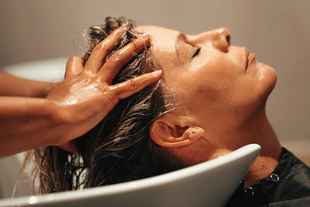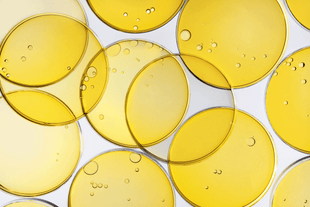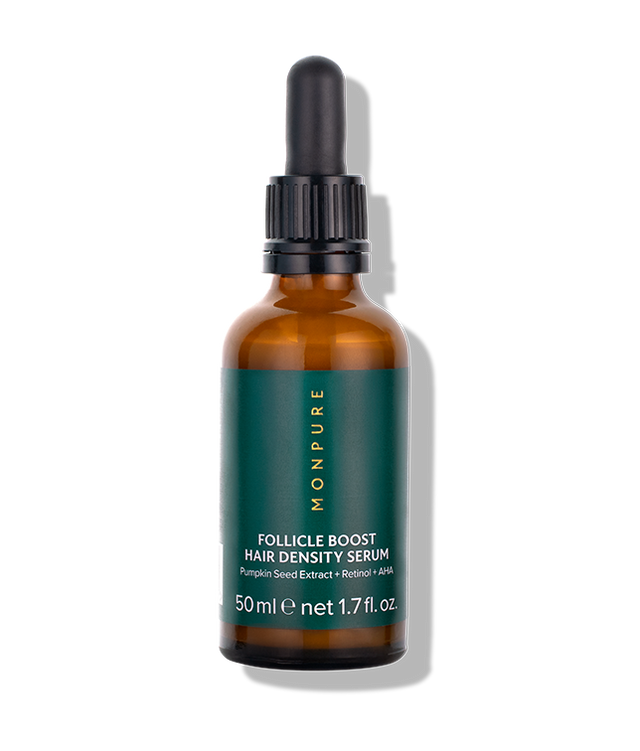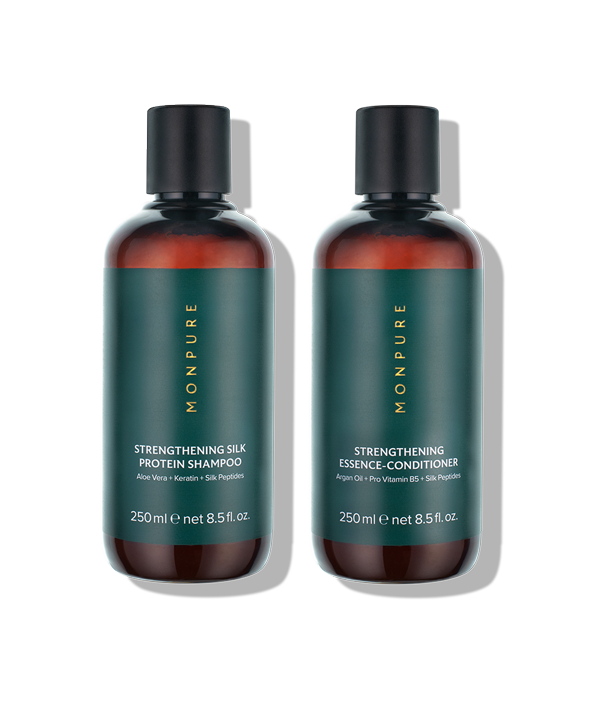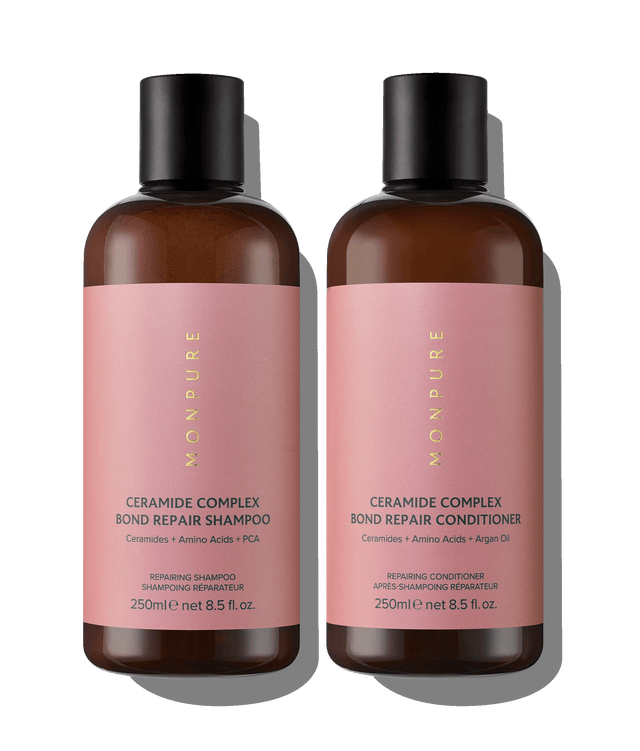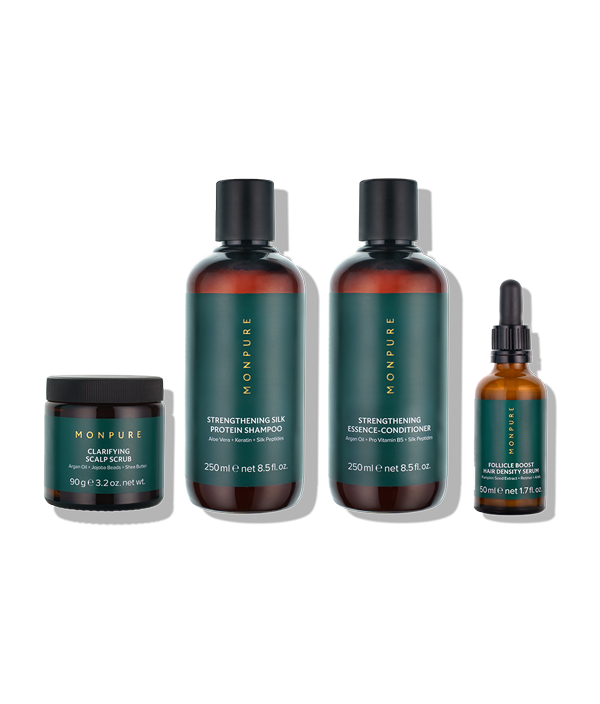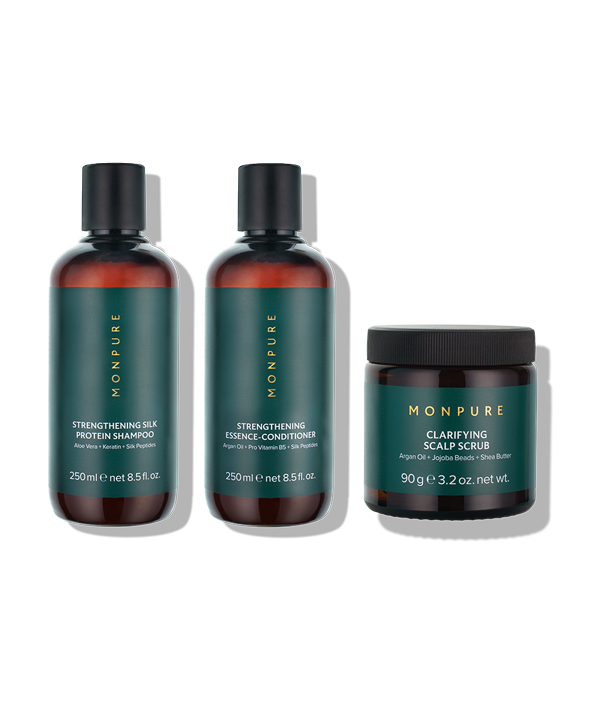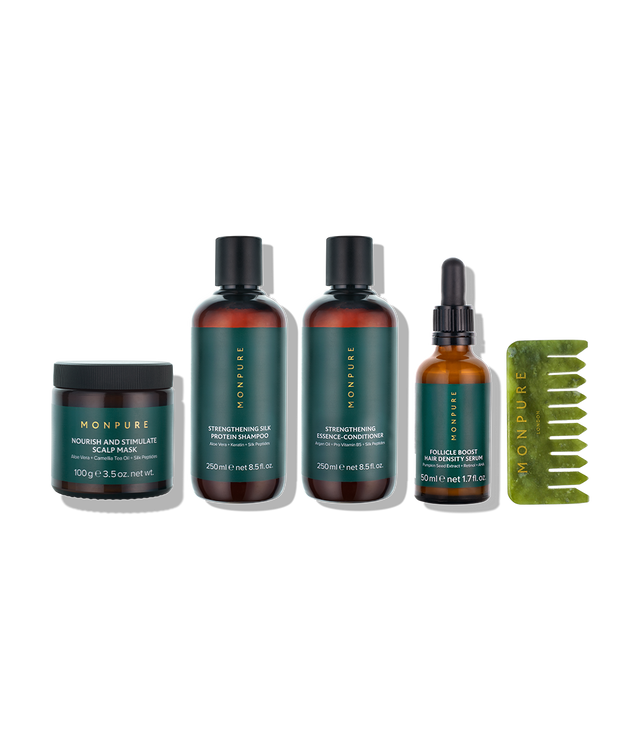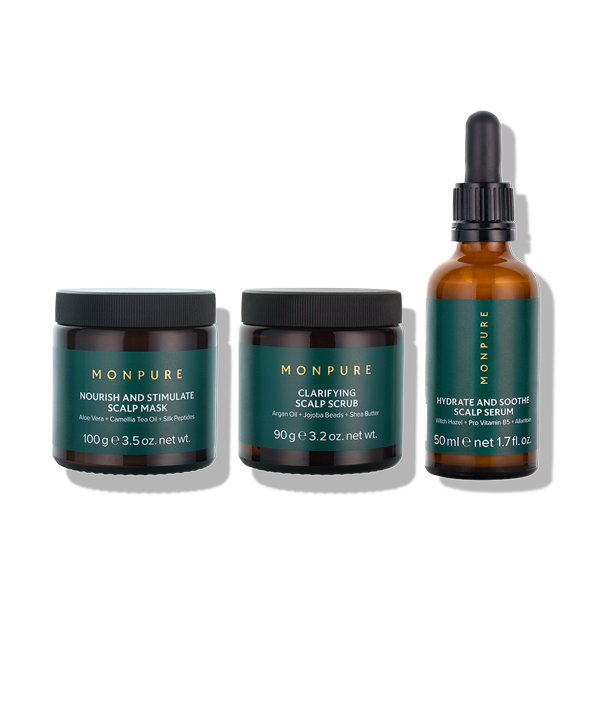Hair Over the Lifetime
Just like the rest of our skin and bodies, our hair and scalp transform as we age. However, in contrast with the skin, aging of the scalp and hair over the lifespan have only recently gained attention in both medical and beauty spheres.
As women age, they undergo significant milestones and periods in their lifetime that can affect their scalp and hair. Whether it be hair thinning, excess sebum production, changes in texture or even increases in hair density over certain periods of the lifetime, age-related changes are part and parcel of the natural life cycle, but can be nourished and strengthened with the right treatments and solutions.
Here’s what to expect as your scalp and hair change over the lifetime…
Hair Loss During the Menstrual Period and Puberty
There is certainly a correlation between your 28-day cycle and the state of your strands. As the scalp is an extension of the skin, it follows that our scalps are also oilier during the time of the month. This is due to the hormonal changes that occur during the menstrual cycle.
Just before your period there is a sudden spike in androgens (male sex hormones), particularly testosterone. This gives your scalp and roots an oilier appearance. A 2009 study found that oestrogen influences sebum production, as it functions to suppress sebum levels and sebaceous gland activation. Therefore, an oily scalp before the onset of menstruation is association with reduced oestrogen presence and increased androgenic presence.
During menstruation itself, the sudden drop in oestrogen also affects the hair growth cycle. While this change is usually subtle, unless one experiences PCOS (read more here) or an irregular period, the hairs enter the telogen (shedding) phase too quickly, leading to more hair fall than the usual 50 to 100 hairs per day. Luckily, this form of temporary hair loss, termed telogen effluvium, is reversible and completely normal, and usually corrects itself as hormones rebalance.
Women with heavy periods can also experience anaemia, otherwise known as an iron deficiency. Forming part of the protein haemoglobin, low iron hinders the transportation of oxygen to the cells that stimulate hair growth. It is also an essential component of the enzyme ribonucleotide reductase that stimulates follicles, so low iron stores can stall new cell growth.
Hair and Birth Control
Across Europe, the UK has the seventh highest share of women in the country using the pill as their primary method of contraception (1). Across the UK in 2021, the birth control pill was the most common method of contraception used by women aged 15 to 59 years, with 28% using it as their main method. Interestingly, among the age group 18 to 24, above 60% of women in the UK opt for a user dependent contraceptive (2).
There are two different types of contraceptive pills, the combined pill containing synthetic oestrogen and progesterone hormones, and the ‘mini pill’, which only contains synthetic progesterone. Some contraceptive pills are actually anti-androgenic, meaning they have high levels of oestrogen that keep the hair in the anagen (growth) phase for longer, safeguarding against hormonal hair loss.
On the other hand, some contraceptive pills lead to increased hair shedding as they have a higher ‘androgenic activity’, causing the hairs to stay in the telogen (resting) phase for longer. A lot of women will experience hair loss in the form of telogen effluvium once they stop taking the contraceptive pill due to the sudden drop in oestrogen that was supported by the pill. However, this mass shedding usually resolves itself soon afterwards.
Hair Growth During Pregnancy
During pregnancy, some women notice increased hair thickness as a result of higher levels of oestrogen prolonging the anagen (growth) phase, leading to less shedding and thicker strands. While not common, some women experience hair loss during pregnancy due to the stress associated with it.
The stress hormone cortisol, which spikes during periods of shock, regulates the normal functioning of the hair follicles. When cortisol exponentially increases, the hair follicles undergo apoptosis, in which anagen (growth) hairs abruptly shift into telogen (resting) prematurely.
The first trimester of pregnancy can ‘shock’ the body as the hormonal balancing scales shift, dramatically shifting an additional 30% of hairs in the telogen (resting) phase of the growth cycle, causing diffuse fallout in the form of telogen effluvium, a temporary form of hair loss.
Alongside hair loss, many women are more susceptible to scalp itchiness and irritation during this time period, which can even extend into the months after delivery. Research suggests that blood volume increases progressively throughout pregnancy, with the total blood volume increase varying between 20% to 100% pre-pregnancy levels (2).
This swelling of blood vessels connected to nerve endings on the scalp can result in scalp sensitivity, tingling, itchiness or even pain during pregnancy.
Postpartum Hair Loss
After delivery, it is normal to notice increased amounts of hair loss - as all the hairs that remained in the prolonged anagen (growth) phase transition into the catagen phase. At the time, hair loss appears abundant but only represents the elimination of the additional hairs that had been maintained in the anagen phase during pregnancy (3).
A 2013 study showed that during the first weeks postpartum, hairs enter the telogen (resting) phase in a synchronous wave, reaching about 30% after nine weeks, which explains how most postpartum hair loss is experienced two to four months after childbirth.
Luckily, postpartum hair loss is very common and only temporary. Most women start regaining their normal hair growth by their child’s first birthday, but many find that their hair growth bounces back even sooner than that.
Menopausal Hair Loss
Menopause is a natural biological process that all women will experience in their lives. During this period, the body goes through a variety of physical transformations as it adjusts to hormonal fluctuations.
Specifically, menopause refers to the lack if a menstrual period for a course of 12 months. The average age of menopause is around 51, while perimenopuase refers to the time leading up to menopuase, which can begin 8 to 10 years prior to the onset of menopause itself.
Incidence of hair loss or thinning increases with age. A study conducted in 2021 found that the onset of female-pattern hair loss (A.K.A androgenic alopecia) is associated with menopause due to drops in circulating oestrogen and the ceasing of ovarian function.
Once menopause begins, the ovaries produce fewer follicles, resulting in a decline in oestrogen in the body. This decrease means that androgenic hormones hold a stronger presence, leading to follicular miniaturization and gradual hair thinning.
Learn more about follicular miniaturization here.
The increased presence of the androgenic hormone, DHT (a by-product of testosterone) causes the hair follicles to shrink, producing a shorter, thinner hair shaft. Additionally, the anagen (growth) phase shortens, while the time between the telogen (shedding) and new anagen (growth) phase lengthens (4). The result is both fine and thinning hair. Over time, hair becomes more fragile, brittle and thin, as well as more sparse in density.
Many women also report scalp dryness and diminishing skin elasticity during menopause. Higher levels of androgens may also prompt sebaceous glands in the scalp to produce excess sebum, causing an oily scalp.
The MONPURE Solution to Hair Loss over the Lifetime
The MONPURE range is brimming with solutions that cultivate the best dermatological condition for the scalp, even under fluctuating hormonal conditions that women face throughout the lifetime.
We want to pay homage to the best-selling Follicle Boost Hair Density Serum, which contains natural solutions to hair loss and thinning. Formulated on scientific grounds, this invigorating hair growth elixir works like fertiliser to a flower-bed.
The Follicle Boost Hair Density Serum initially targets the catagen (transition) and telogen (resting) phases within the first 4-6 weeks, working to minimise excess shedding. It also boosts the growth of new follicles leaving the telogen phase and entering into a new cycle of the anagen (growth) phase, which usually takes around 3 months.
Star ingredient, Pumpkin Seed Extract, has been scientifically proven to block the 5-alpha reductase enzyme responsible for converting testosterone into DHT, the hair-loss-causing androgen that shrinks the follicle’s growth phase and prolongs its shedding phase.
It also contains Coffee Arabica Extract, proven to offset the effects of DHT through shaft elongation and thickening. What’s more, it’s packed with antioxidants and antimicrobial properties that deliver nutrients and ward off dandruff. It is formulated with Rosemary Oil, which promotes cell turnover, boosts circulating and delivers nutrients and oxygen to the follicles.
The serum is also formulated with skincare-staples Retinol and Lactic Acid, that gently decongest clogged hair follicles, promote healthy cell renewal and enhance the absorption of other ingredients and nutrients.
It’s Not Just Hair
At MONPURE, we want to support women throughout the milestones and stages of their lifetime. With an understanding of the psychological and emotional toll of hair loss and thinning, we want to break the silence and open the conversation around female hair loss throughout the lifetime.
Want to share your hair loss story? Join our support community on Instagram @ItsNotJustHair to break the taboo and raise awareness around female hair loss.
(1, 2) https://www.statista.com/statistics/573210/contraceptive-use-among-women-by-type-and-age-in-england/
(3) https://www.ahajournals.org/doi/full/10.1161/circulationaha.114.009029
(4) https://www.hindawi.com/journals/bmri/2013/957432/





